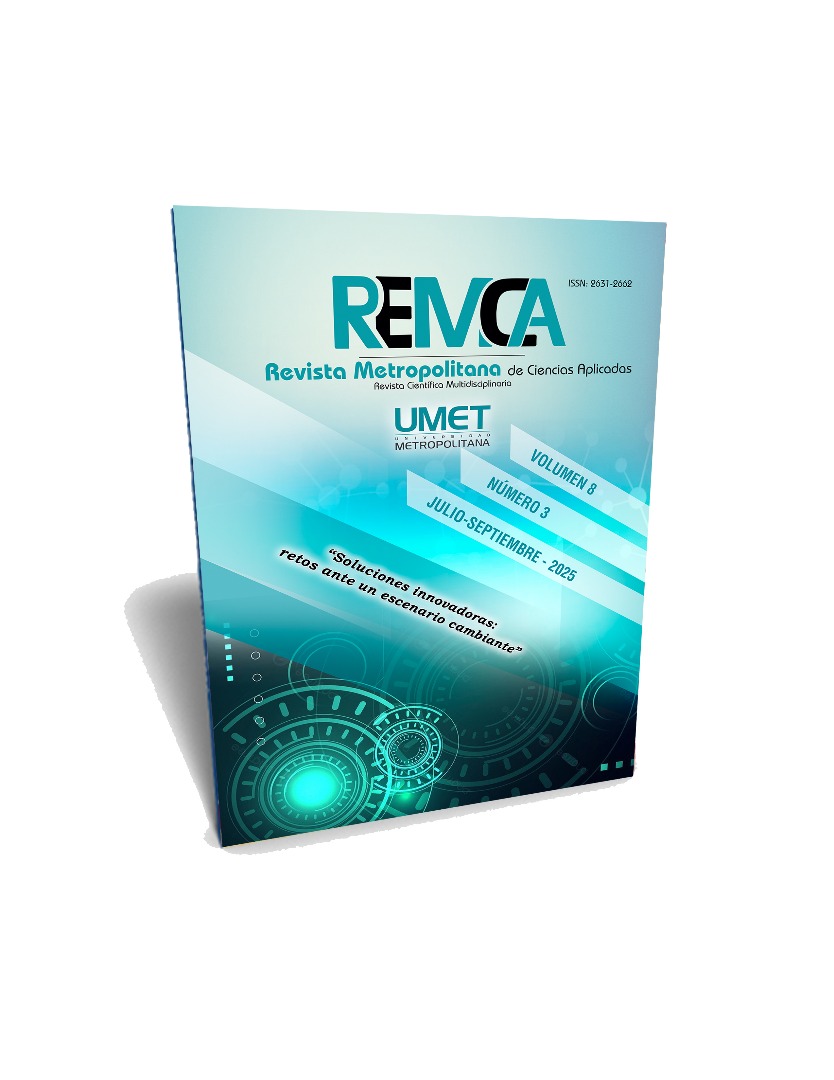The influence of motivation on the academic performance of secondary school students
DOI:
https://doi.org/10.62452/663ksz49Keywords:
Academic motivation, academic performance, secondary educationAbstract
Motivation is an essential element in the educational process, especially in secondary education, where students face multiple academic and personal challenges. Different studies have shown that motivation significantly influences academic performance, with intrinsic motivation being a key factor for meaningful learning. However, factors such as excessive use of technology, lack of emotional support, and academic workload can negatively affect students' motivation. The present research analyzes the influence of motivation on the academic performance of secondary school students, addressing the factors that affect it, the types of motivation, and strategies to foster it in the classroom. The findings of previous studies are highlighted and an approach based on the creation of motivating learning environments, the development of emotional intelligence, and the appropriate use of technology to improve the educational experience is proposed.
Downloads
References
Amores, A., & De Casas, P. (2019). El uso de las TIC como herramienta de motivación para alumnos de enseñanza secundaria obligatoria. Estudio de caso. Hamut´ay, 6(3), 37-49. https://dialnet.unirioja.es/descarga/articulo/7328204.pdf
Anguita Acero, J. M., Méndez Coca, M., & Méndez Coca, D. (2020). Motivación de alumnos de Educación Secundaria y Bachillerato hacia el uso de recursos digitales durante la crisis del Covid-19. Revista de Estilos de Aprendizaje, 13(Especial), 68–81. https://doi.org/10.55777/rea.v13iEspecial.2242
Banco Mundial. (2023). Desenmascarando una crisis silenciosa: el impacto de la COVID-19 en la salud mental y el aprendizaje de los estudiantes. https://blogs.worldbank.org/es/education/desenmascarando-una-crisis-silenciosa-el-impacto-de-la-covid-19-en-la-salud-mental-y-el
Cadena SER. (2024). Un estudio de la UMH de Elche señala que los alumnos que más usan el móvil muestran menor rendimiento académico. https://cadenaser.com/comunitat-valenciana/2024/12/20/un-estudio-de-la-umh-de-elche-senala-que-los-alumnos-que-mas-usan-el-movil-muestran-menor-rendimiento-academico-radio-elche/
Cajusol Baldeon, E. M., & Rivas Díaz, L. H. (2021). Relación entre Motivación Académica y Rendimiento Académico en los estudiantes de Enfermería de la UNMSM. Tecno Humanismo. Revista Científica, 1(11), 1-17. https://dialnet.unirioja.es/descarga/articulo/8179033.pdf
Cera, R., Almagro, B. J., Conde, C., & Sáenz-López, P. (2015). Motivación escolar, inteligencia emocional y rendimiento académico en estudiantes adolescentes. Revista de Estudios e Investigación en Psicología y Educación, (13), 296-300. https://doi.org/10.17979/reipe.2015.0.13.139
Condori-Palomino, J. A. (2023). Inteligencia emocional y motivación académica en estudiantes universitarios de formación en educación primaria. Revista de Estudios Psicológicos, 3(3), 74-83. https://doi.org/10.35622/j.rep.2023.03.008
Dweck, C. S. (2006). Mindset: The new psychology of success. Random House.
Espinosa Mendoza, M. J., & Pérez Pérez, M. P. B. (2022). La Motivación dentro del proceso de enseñanza y de aprendizaje. Ciencia Latina Revista Científica Multidisciplinar, 6(6), 11060-11097. https://ciencialatina.org/index.php/cienciala/article/download/4186/6402/
Formento Torres, A. C., Quílez-Robres, A., & Cortés-Pascual, A. (2023). Motivación y rendimiento académico en la adolescencia: una revisión sistemática meta-analítica. RELIEVE - Revista Electrónica De Investigación Y Evaluación Educativa, 29(1). https://doi.org/10.30827/relieve.v29i1.25110
Hidalgo, P. (2022). Motivación y rendimiento académico en los estudiantes de una universidad pública de Lima Metropolitana. (Tesis de maestría). Universidad Cesar Vallejo.
Innovamat. (2024). Pantallas, juego y Matemáticas: el cóctel con riesgos de una 'app' que ya usan más de 1.700 colegios en España. El País. https://elpais.com/educacion/2024-10-09/pantallas-juego-y-matematicas-el-coctel-con-riesgos-de-una-app-que-ya-usan-mas-de-1700-colegios-en-espana.html
Mendoza Rodríguez, B. (2021). Motivación y rendimiento académico en estudiantes del nivel secundaria de una institución educativa privada de Villa María del Triunfo. (Tesis de licenciatura). Universidad Marcelino Champagnat.
Pajares, F., & Schunk, D. H. (2001). Self-beliefs and school success: Self-efficacy, self-concept, and school achievement. En, R. Riding & S. Rayner (Eds.), Self perception. (pp. 239-266). Ablex Publishing.
Rodríguez Fuentes, G. (2009). Motivación, estrategias de aprendizaje y rendimiento académico en estudiantes de ESO. (Tesis doctoral). Universidade da Coruña.
Rodríguez, S., Piñeiro, I., Regueiro, B., & Estévez, I. (2020). Motivación intrínseca y utilidad percibida como predictores del compromiso del estudiante con los deberes escolares. Revista de Psicodidáctica, 25(2), 93-99. https://doi.org/10.1016/j.psicod.2019.11.001
Soto-Romero, O., Venegas-Linares, D., & Medina-Hernández, E. (2023). Incidencia de factores socioemocionales en el rendimiento académico de estudiantes de secundaria. Revista de Educación, 27(1), 400-418. https://doi.org/10.15332/er.v27i1.5344
Tirado, F., Santos, G., & Tejero-Díez, D. (2013). La motivación como estrategia educativa. Un estudio en la enseñanza de la botánica. Perfiles Educativos, 35(139). https://doi.org/10.22201/iisue.24486167e.2013.139.35713
Usán Supervía, P., & Salavera Bordás, C.(2018). Motivación escolar, inteligencia emocional y rendimiento académico en estudiantes de educación secundaria obligatoria. Actualidades en Psicología, 32(125), 95-112. https://dx.doi.org/10.15517/ap.v32i125.32123
Wu, J., Qi, S., & Zhong, Y. (2022). Intrinsic motivation, need for cognition, grit, growth mindset and academic achievement in high school students: Latent profiles and its predictive effects. Arxiv preprint. https://arxiv.org/abs/2210.04552
Downloads
Published
Issue
Section
License
Copyright (c) 2025 Maritza Librada Cáceres-Mesa, Omar Téllez-Villeda, María Guadalupe Veytia-Bucheli, Irma Quintero-López (Autor/a)

This work is licensed under a Creative Commons Attribution-NonCommercial-ShareAlike 4.0 International License.
Authors who publish in Revista Metropolitana de Ciencias Aplicadas (REMCA), agree to the following terms:
1. Copyright
Authors retain unrestricted copyright to their work. Authors grant the journal the right of first publication. To this end, they assign the journal non-exclusive exploitation rights (reproduction, distribution, public communication, and transformation). Authors may enter into additional agreements for the non-exclusive distribution of the version of the work published in the journal, provided that acknowledgment of its initial publication in this journal is given.
© The authors.
2. License
The articles are published in the journal under the Creative Commons Attribution-NonCommercial-ShareAlike 4.0 International License (CC BY-NC-SA 4.0). The terms can be found at: https://creativecommons.org/licenses/by-nc-sa/4.0/deed.en
This license allows:
- Sharing: Copying and redistributing the material in any medium or format.
- Adapting: Remixing, transforming, and building upon the material.
Under the following terms:
- Attribution: You must give appropriate credit, provide a link to the license, and indicate if any changes were made. You may do this in any reasonable manner, but not in any way that suggests the licensor endorses or sponsors your use.
- NonCommercial: You may not use the material for commercial purposes.
- ShareAlike: If you remix, transform, or build upon the material, you must distribute your creation under the same license as the original work.
There are no additional restrictions. You may not apply legal terms or technological measures that legally restrict others from doing anything the license permits.




